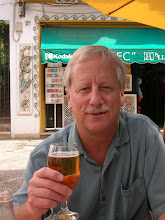In my last post, I raised the question why most people seem unwarrantly confident in their own opinions. I suggested that this may be partly due to fear. But there is another reason. Because it is naturally how we, as human beings, think.
The groundwork for modern behavioral economics was laid by Kahneman and Tversky. In the old model of human rationality, it was assumed that people were able to make probablistic calculations. What has been found is that instead we use unconscious rules of thumb, or "heuristics." These thought processes probably had evolutionary value at some time. Better to think fast when the lion is coming than reason.
One of the heuristics is to generalize on the basis of insufficient evidence. Once people are convinced that a small sample is representative of reality, they place unwarranted faith in their ability to forecast the future. Of course, overconfidence is often a valuable trait in itself. Currently, it leads people in sales, law and leadership positions to often be more effective. There is no reason not to think that some such traits often had evolutionary value in primitive societies, too. In order to have evolutionary value, it just means that you were more likely to pass on your genes. Certainly, the lotharios were better able to do this than the slackers.
There are other heuristics that make us likely to be wrong or overconfident. The availability heuristic leads people to give more weight to dramatic events, even if they occur less frequently. People can get "anchored" by even random occurences. For instance, studies have shown that a person presented a certain number randomly prior to making a decision will influence his decision dramatically. And then there is "confirmation bias." We tend to look for facts that confirm our already held views, rather than facts that would disconfirm them.
Often procrastination and laziness play in. It is easier go with your "intuition," your belief based on unconscious heuristics, than it is to deliberate. The latter requires effort. These tendencies have been correlated with regions in the brain by neurologists. Deliberation fires up the frontal cortex. Unconscious processes, the limbic system, which are the site of emotions. So even though it may be natural to be overconfident, the awareness of how little you know may also fire up the limbic system, making people even less likely to evaluate their beliefs. And the less likely you are to consider that you may be wrong, or even that your view is a prejudice based on little evidence, may make you even more overconfident.
Sunday assorted links
4 hours ago




No comments:
Post a Comment